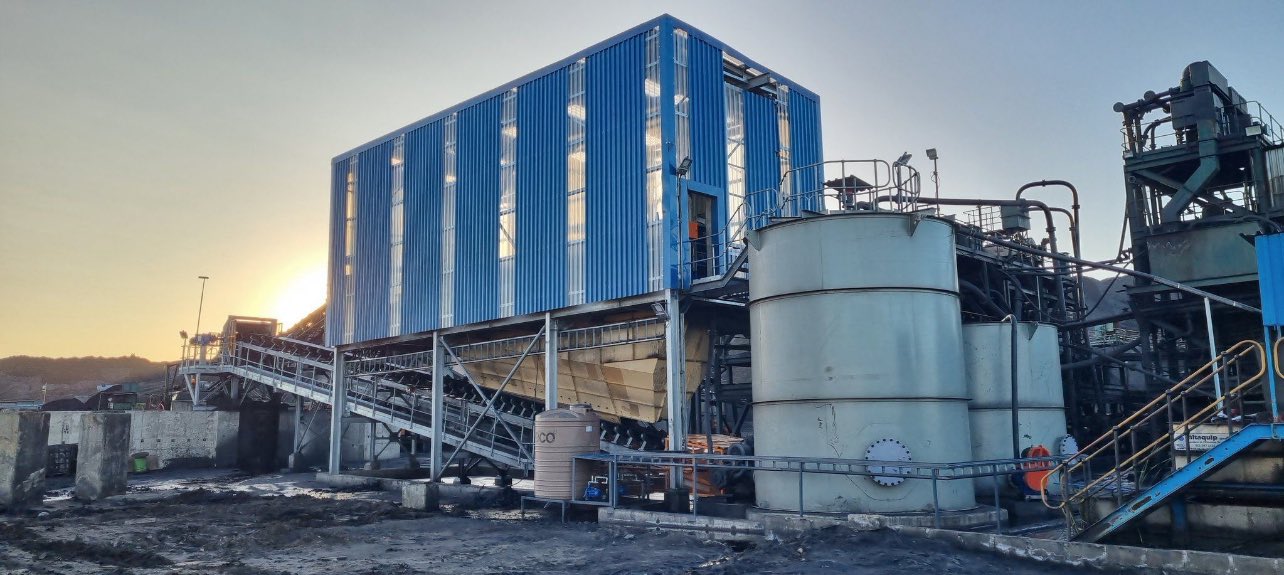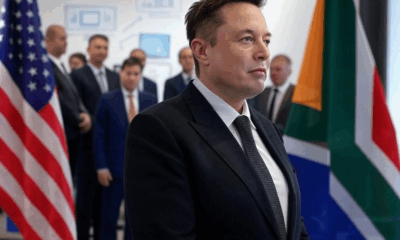Published
8 months agoon
By
zaghrah
Johannesburg’s JSE once bustled with mining companies over 600 listings in 1987, mining powerhouses making up half of them. Fast forward to today: only 35 mining firms remain, seven with no South African operations, and the sector has officially slipped into recession, with two straight quarters of shrinking output.
This plunge is about more than market cycles; it’s a cautionary tale of policy missteps, infrastructure breakdowns, and a regulatory environment ill-suited for the modern mining era.
From Boom to Bust
Mining output is now 10% below its level ten years ago and down 20% compared to two decades back, according to Izak Odendaal at Old Mutual Multi-Managers.
Yes, fluctuating commodity prices play a role, but the consistent downward slide points deeper. One glaring symptom: Glencore’s shutdown of two chrome plants in its Glencore-Merafe venture, citing record electricity costs (up 700% in a decade), logistical paralysis at Transnet, and a soft global ferrochrome market.
The Policy Stranglehold
Critics say the mining charters intended to promote black ownership and community shareholding—have been wielded as de facto taxes. Paul Miller of AramanthCX doesn’t mince his words: “SA mining is uninvestible.”
The new Draft Mineral Resources Development Bill aims to tighten that grip. It would:
Require ministerial approval for any change in shareholding, even for foreign-listed firms
Mandate BEE partners in prospecting and mining rights
Enforce local beneficiation, forcing producers to process minerals domestically
These policies, critics warn, flag South Africa as a regulatory minefield in investors’ eyes.
Exploration on Life Support
Global leaders like Australia and Canada receive 16–20% of world exploration budgets. South Africa? A mere 0.8%. The Minister’s ambition to reclaim a 5% share looks out of reach when junior miners struggle to raise capital—and must add BEE partners before greenlighting projects.
A recent R400 million fund from the IDC and the Department of Mineral Resources and Energy could kickstart some projects, but mining analyst Odendaal says South Africa needs closer to R10 billion to ignite a real resurgence.
Infrastructure’s Silent Sabotage
Exploration pipelines take 10–15 years to yield returns—if they survive. But explorers face a second hurdle: state incapacity.
Transnet’s rail and port delays, Eskom’s electricity breakdowns, and bureaucratic cadastres stall projects. Odendaal emphasizes: without robust logistics and power infrastructure, even the most promising mines stay mothballed.
A Path to Revival
Despite the gloom, a comeback is possible. Old Mutual’s list of essentials:
Capital investment for greenfield exploration and feasibility studies
A stable, predictable regulatory framework
Accessible mining rights and geological data
Reliable labour and community relations
Critical water, energy, and transport infrastructure
Empowerment of mining firms to run their own logistics
A bold reform agenda—perhaps under fresh political leadership, is needed to dismantle red tape, align the beneficiation vision with economic reality, and restore investor faith.
The Bigger Picture
This isn’t just about mines; it’s about the backbone of South Africa’s economy. The resources sector once fueled industrial growth, brought jobs, and cemented trade. Now, a shrinking mining industry symbolizes missed opportunities and misaligned policies.
As one South African economist put it: mining growth could reach 3% annually if infrastructure and investment hurdles were cleared.
South Africa’s mining sector stands at a crossroads. Will it be trapped in recession under layers of regulation and blackouts or chart a course to revival with strategic reforms and infrastructure investment? Only time and bold leadership will tell.
{Source: The Citizen}
Follow Joburg ETC on Facebook, Twitter , TikTok and Instagram
For more News in Johannesburg, visit joburgetc.com


The R20bn Vote of Confidence: Inside SA’s Overhauled Transformation Fund


A Continent in Stone: Cullinan Mine Unearths a 42-Carat Blue Diamond Shaped Like Africa


Another Life Lost on the Tracks: Anger Grows After Second Fatal Train Death in Kempton Park


“It Keeps Me Awake at Night”: Ramaphosa Speaks Candidly About Unemployment


The Great Eskom Data Debate: A Mirage or a Miracle at Year-End?


Starlink sparks political storm as ANC accuses minister of bypassing transformation laws















